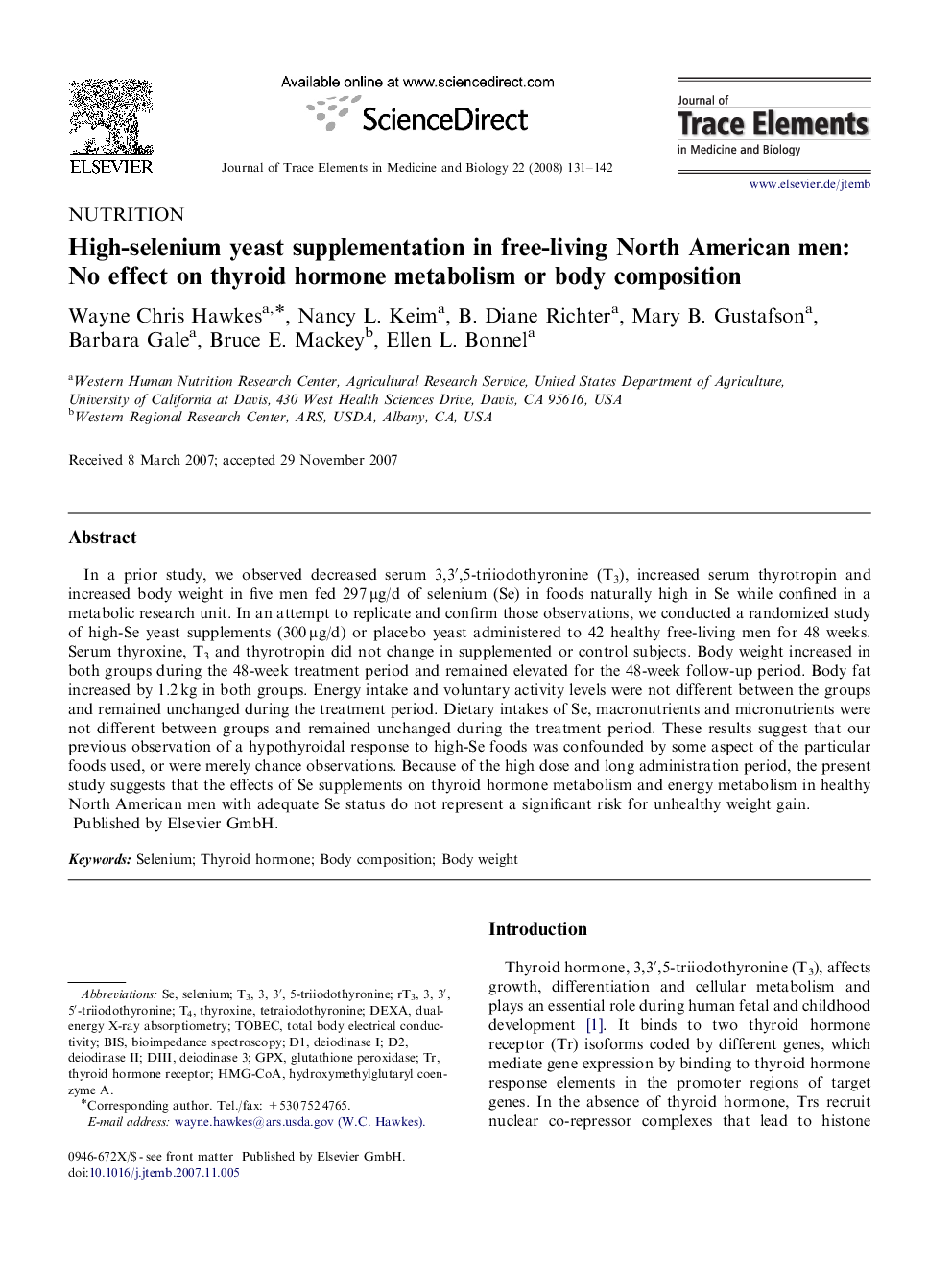| Article ID | Journal | Published Year | Pages | File Type |
|---|---|---|---|---|
| 1226834 | Journal of Trace Elements in Medicine and Biology | 2008 | 12 Pages |
In a prior study, we observed decreased serum 3,3′,5-triiodothyronine (T3), increased serum thyrotropin and increased body weight in five men fed 297 μg/d of selenium (Se) in foods naturally high in Se while confined in a metabolic research unit. In an attempt to replicate and confirm those observations, we conducted a randomized study of high-Se yeast supplements (300 μg/d) or placebo yeast administered to 42 healthy free-living men for 48 weeks. Serum thyroxine, T3 and thyrotropin did not change in supplemented or control subjects. Body weight increased in both groups during the 48-week treatment period and remained elevated for the 48-week follow-up period. Body fat increased by 1.2 kg in both groups. Energy intake and voluntary activity levels were not different between the groups and remained unchanged during the treatment period. Dietary intakes of Se, macronutrients and micronutrients were not different between groups and remained unchanged during the treatment period. These results suggest that our previous observation of a hypothyroidal response to high-Se foods was confounded by some aspect of the particular foods used, or were merely chance observations. Because of the high dose and long administration period, the present study suggests that the effects of Se supplements on thyroid hormone metabolism and energy metabolism in healthy North American men with adequate Se status do not represent a significant risk for unhealthy weight gain.
